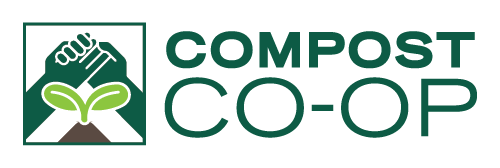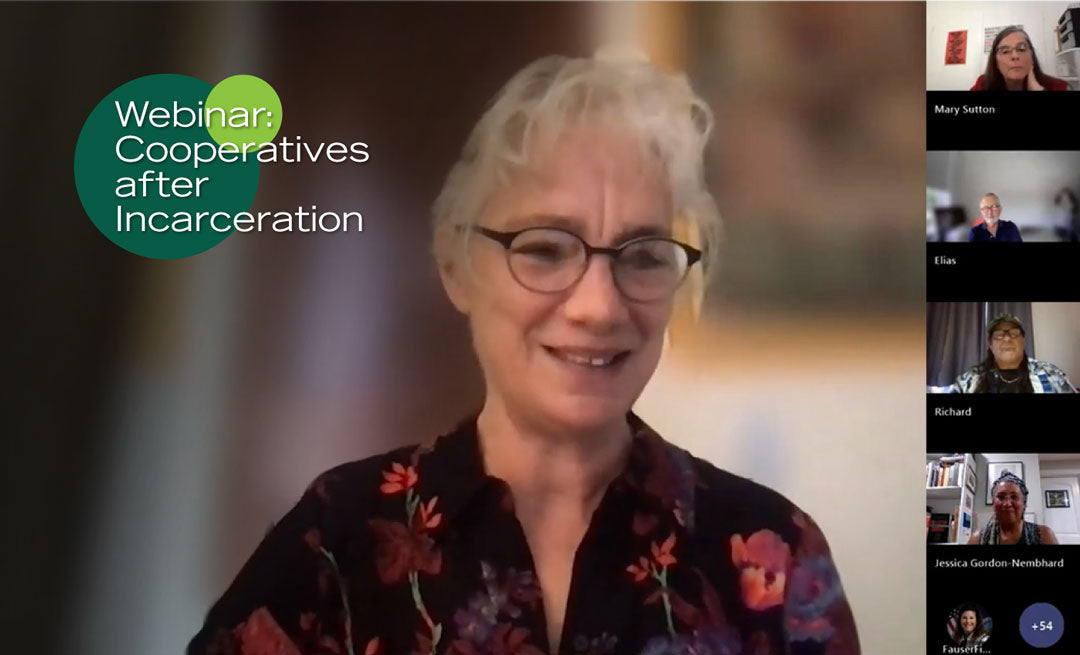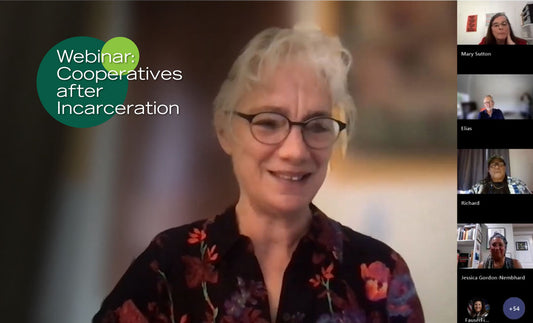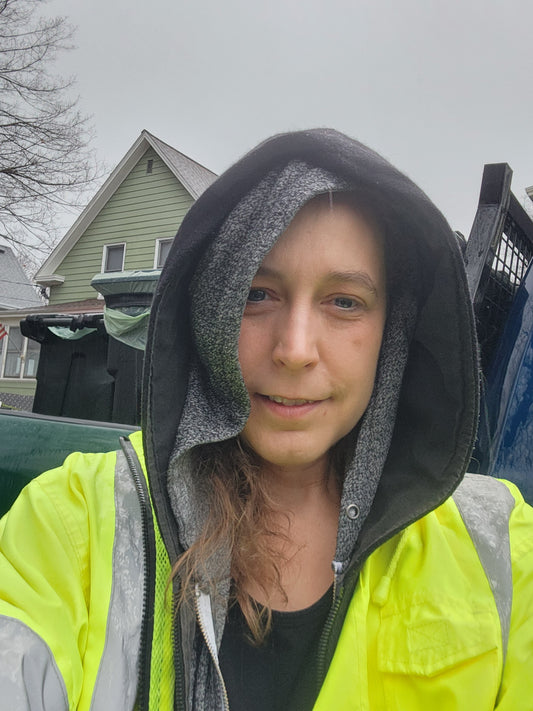The U.S. Department of Agriculture invited the Compost Co-op to participate in a webinar on “Cooperatives After Incarceration,” featuring experts such as Dr. Jessica Gordon Nembhard, author of Collective Courage: A History of African American Cooperative Economic Thought and Practice. This highlights the significant potential of cooperatives to empower communities that suffer from the effects of long-term disinvestment. Join us to explore the remarkable story of the Compost Co-op and its role in supporting change.
Introducing Compost Co-op and Our Unique Mission
In 2017, people incarcerated at the Greenfield Jail developed the first business plan for the Compost Co-op, with a mission to create employment and ownership opportunities for previously incarcerated folks while promoting environmental sustainability. The co-op, which opened for business in 2018, operates on the principle of worker ownership and joins a network of local businesses to convert organic waste into nutrient-rich compost. As members contribute to environmental conservation, we gain a strong sense of purpose and pride in our work.
USDA's Invitation: A Milestone in Our Journey
Being invited by the USDA to participate in the webinar was a significant milestone for the co-op. We were able to share our story and reflections on the transformative power of cooperatives. This recognition of our work on a national stage reaffirmed the importance of our mission.
The webinar “Cooperatives After Incarceration” was sponsored by the Interagency Working Group on Cooperative Development and addressed how cooperatives can support individuals leaving jail and prison. Our participation underscored the growing acknowledgment of cooperatives as a vital tool for social and economic reintegration.
Insights from Dr. Jessica Gordon Nembhard
During the webinar, Dr. Jessica Gordon Nembhard emphasized the historical significance of cooperatives in building power in structurally oppressed communities, including those affected by incarceration. She highlighted the role of cooperatives in providing dignified work, fair wages, and a supportive environment, offering pathways to a brighter future for previously incarcerated individuals and others who face barriers to inclusion.
Overview of Compost Co-op's Development
During the webinar, one of the founding members and a worker-owner of the Compost Co-op provided an overview of the co-op’s journey. Revan emphasized our commitment to maintaining a strong cooperative ecosystem that supports individuals healing from the experience of incarceration and the structural forces that contribute to the US having the highest incarceration rate in human history.
Revan’s presentation begins around 23:00. Watch the full video to contextualize the work of the Compost Co-op in the broader cooperative movement.
The Impact and Future Endeavors of Compost Co-op
The Compost Co-op's impact extends beyond individual changes and local diversion rates, gaining attention from cooperative advocates, policymakers, and social justice organizations. We hope to inspire others to adopt the cooperative model to advance economic democracy and support alternatives to mass incarceration.
Our future endeavors include:
- Scaling operations to densify our service and make it more accessible so that all who want to divert food scraps from the waste stream in our region can participate
- Providing opportunities for training and cultivating the leadership of co-op members
- Advocating for policies that support the cooperative business model
We aim to build a more just and sustainable world with our customers, allies, and local partners. Our mission is to interrupt cycles of reincarceration and redefine public safety. Whether you support economic democracy, racial and environmental justice, or believe there is a better way to address societal harm, please join us in this movement. Let's work together to compost oppressive systems, empower workers to control their own labor, and create a thriving future for everyone.




